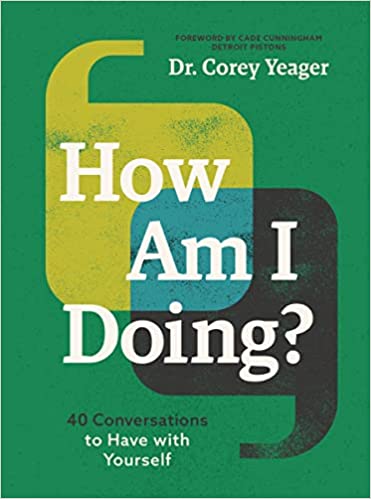When you think of the most important person in your life, you might think of one of the people you’ve committed your life to. Maybe your spouse, or a child, or a longtime friend, a parent or grandparent.
But if a family member, friend, or colleague is the most important person in your life, and everything you do is for them, then where do you come in? Are you the second most important person? Third, fourth, fifth?
You are the most important person in your life. While you might think prioritizing yourself is selfish or arrogant, I hope to convince you it’s not. In fact, it’s essential to your well-being and foundational to the other 39 questions I ask you in my new book, How Am I Doing?: 40 Conversations To Have with Yourself. Facing up to challenges, becoming intentional with your day, making better decisions, improving relationships—you can’t tackle any of those goals until you recognize the position you’re here to play.
Even though I’m a generous guy and I’m happy to share what I have, I still recognize myself as the top dog in my world. And that means sometimes I have to be generous to myself, give myself the same time and attention and grace I give others. Before I can be a good brother, father, husband, friend, therapist, or coach to anyone, I have to be a good Corey for Corey. When opportunities come to put myself first for my own well-being, I take responsibility for my own needs.
When I’m starting to feel overwhelmed, I tell my wife, Carrie, that I’m taking a Corey day. That means I won’t be fielding any calls, even from her. I’ve learned to make this preemptive move before I become submerged and start making poor decisions. I won’t be able to take care of someone else who is overwhelmed when I’m in the same space myself.
It doesn’t mean I don’t want to help others. Being of service to others is vital to me. But I am aware of where I need to be mentally to be able to serve others. There are afternoons I literally sit in a chair in my living room and refuse to answer the door when people ring the doorbell. If they peer inside the house, they can even see me sitting there. That’s how comfortable I have become with putting myself first in this context.
This is not carte blanche to do whatever the heck you want. There will be situations when you’re not the priority, and it isn’t really about you. Putting someone else’s needs first can be the appropriate action in many situations. Staying up late to help your child with homework, or giving up your seat on the subway to someone who needs it, doesn’t mean you’re not the most important person. The difference is you’re moving consciously, not reflexively. You’re moving with awareness.
Try putting yourself first. Notice when and where you hesitate. Keep asking questions. Gaining more awareness of where you fall on your list of priorities is the very first step.



